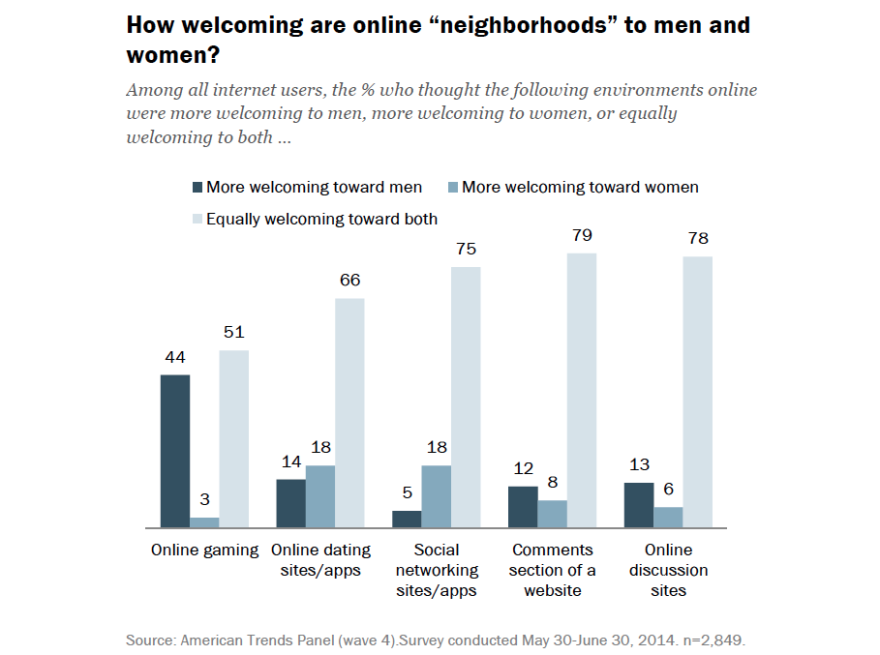As the ongoing, harassment-fueled controversy known as Gamergate rages into its second month with no sign of dying down, the Pew Research Center is out with new numbers on online harassment. They probably won't surprise you: 73 percent of respondents say they've witnessed some kind of threats or embarrassment online and 40 percent have experienced it, mostly in the form of being called offensive names.
Of course, that's the less scary kind of harassment. As Pew notes, "the second category of harassment targets a smaller segment of the online public, but involves more severe experiences such as being the target of physical threats, harassment over a sustained period of time, stalking, and sexual harassment."
That scarier kind of harassment is at the top of the headlines lately, because in Gamergate, the threats of violence have gotten so severe that a feminist video blogger last week was forced to cancel a speaking engagement after threats of a bloody massacre, and at least a handful of women who are targets of Gamergate have been forced into hiding.
Some Gamergaters contend that what they're really rallying for is ethics in journalism, but New York Magazine's Jesse Singal calls that into question in a thoughtful piece, in which he writes, "Despite the fact that Gamergate 'isn't about' feminists or ... social justice warriors in general, all these figures and subjects have a weird, pesky habit of continuing to pop up wherever gamergaters assemble."
The Pew research supports the notion that women are less welcome in the world of online gaming. Survey respondents, who were both men and women, were asked about a series of online platforms — social networks and online commenting forums, for example — and whether they thought those platforms were more welcoming to women, equally welcome to both sexes or more welcoming toward men.
The findings show that while most online environments are viewed as equally welcoming, gaming is not. "The starkest results were for online gaming," the researchers write, where 44 percent of respondents said the platform was more welcoming to men. You can see the starkness of the results in this bar graph:
Copyright 2021 NPR. To see more, visit https://www.npr.org.






